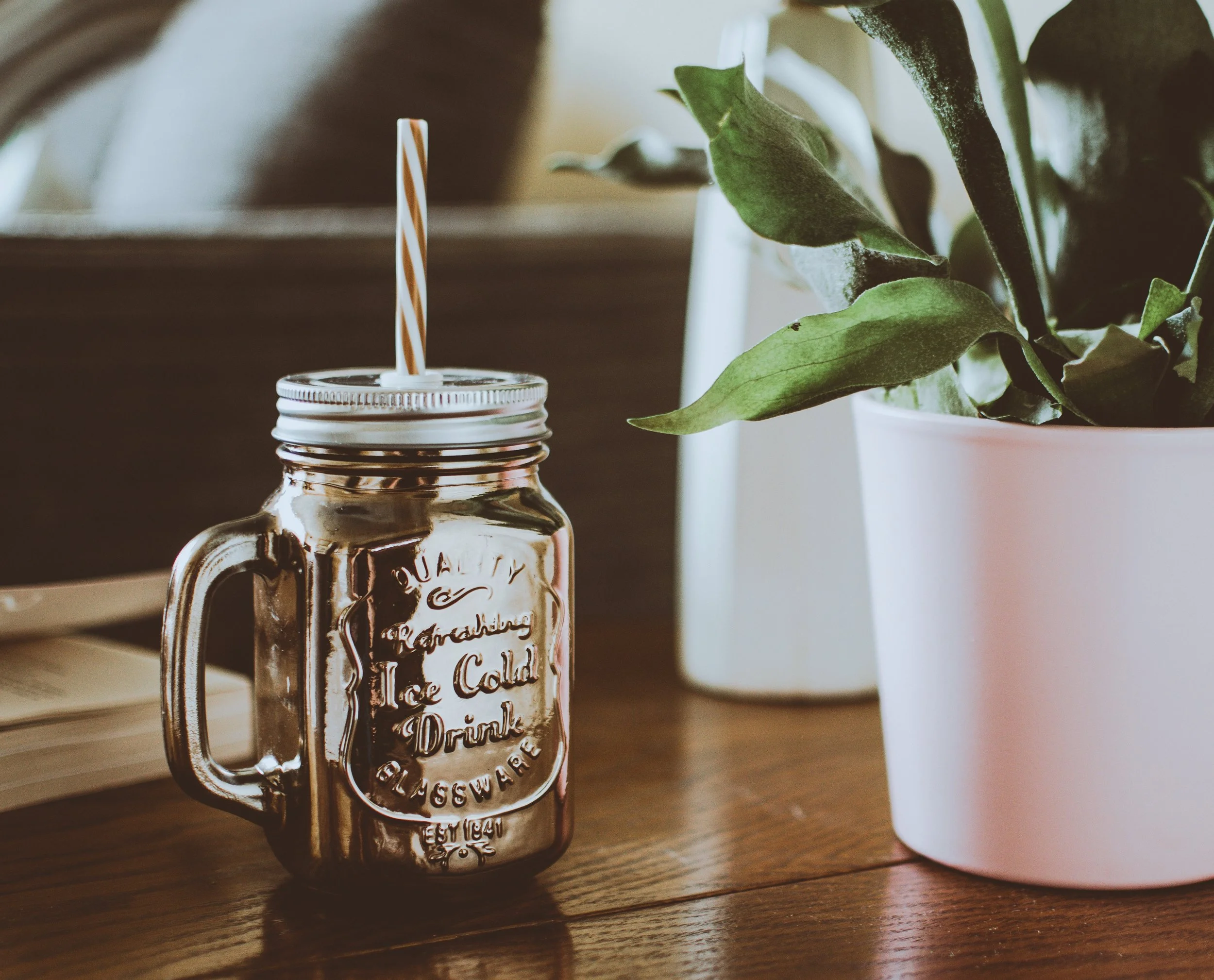Healthy Coping Mechanisms: Are You Using Paper Straws?
If you’ve gotten a cold beverage out on a sunny day in the past few years, chances are you’ve encountered the dreaded paper straw. While its biodegradable qualities make it a more environmentally friendly option than a plastic straw for drinks to go, it has a few flaws in terms of its usefulness in helping you enjoy your drink.
For starters, it can tend to have an odd taste or smell that can give your iced coffee or sweet soda a flavor you weren’t expecting. As time goes on, a paper straw tends to get rather soggy. This weakens the straw’s suction power as you continue to sip, feels rather strange on your lips, and can sometimes fall apart altogether. As much as we appreciate the reduction of single-use plastics, we can all acknowledge that paper straws are helpful for a brief period of time, but in the long-term, might not be the best solution. (Any fans of reusable stainless steel straws out there?)
Recently, a client and I were comparing different coping mechanisms for dealing with anxiety and quickly realized that some coping mechanisms that are easily accessible and not difficult to use are sometimes not the best for our mental health in the grand scheme of things. There are all kinds of quick and easy ways to deal with the discomfort and distress of anxiety: numbing out by consuming excessive television, movies, and podcasts, keeping extremely busy to the point of constant distraction, or even abusing substances to temporarily forget or lessen our inner pain.
Coping mechanisms like these can buy us some momentary distance from unpleasant emotions like anxiety, grief, anger, disappointment and more, but do not do much to address the underlying cause of the emotions, and thus leave us right where we started, and sometimes worse off. When we use unhealthy coping mechanisms, they remove us from the pain of the situation momentarily, but the avoidance of the emotion lying beneath it causes the emotions as well as any significant circumstances that are causing it to remain unchanged. This avoidance may then cause us to miss out on opportunities to reduce our unpleasant emotions at their source, such as directly resolving conflict in an important relationship, processing and expressing grief and sadness in order to release some of its hold on us, or taking steps to mitigate risks or find evidence that we are already safe enough in order to find peace from fear and anxiety.
As I thought of the patterns surrounding unhealthy coping mechanisms and meditated on how easy they were to find but how ineffective they were when all is said and done, I conjured the image of a paper straw: it’s just as easy to use, it accomplishes a desirable goal, but it’s potentially more inconvenient than helpful in the long run. With straws, it’d be much better to have a tool that was just as beneficial for the environment, but also effective - enter reusable (stainless steel or silicone) straws.
With coping mechanisms, we are also looking for tools that are useful both in the short and long term, and do not create lasting harm, but rather promote increased and ongoing wellness! Positive coping skills include grounding exercises, distress tolerance and emotional regulation skills (ask us if you’d like to know more about these!), relaxation, mindfulness and meditation, seeking support from a friend or therapist, engaging in problem-solving, and establishing healthy boundaries. These coping mechanisms can be used to make the present moment more tolerable and help support you as you navigate the root cause of your unpleasant emotions. Consider seeking the help of a mental health counselor to explore what coping mechanisms could be helpful right now and less regrettable later.
We all have our coping mechanisms: some helpful, some very helpful, and some that may not be serving us as well as we’d think. What coping mechanisms do you use when things get hard? Are they ultimately letting you down or setting you back like a paper straw? Or are they helping you lead a life that is more enjoyable, fruitful, and satisfying to you? We raise a glass (complete with reusable straws) to healthy coping mechanisms for a healthy life.

